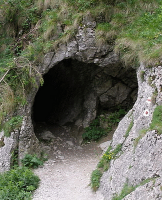Yesterday I finished reading the exciting book
The Sindbad Voyage. It was written by the
explorer/adventurer Tim Severin and describes his voyage from the country of Oman on the Arabian Peninsula, to China in 1980 using a traditional Arab sailing vessel. He constructed the ship using the ancient sewn plank method and followed ancient historical records in preparing and charting his route. It is a very well written and interesting book, and I would recommend it to anyone interested in adventure and sailing, and especially to those interested in a more detailed comparison of Nephi's voyage from Oman to the New World.
explorer/adventurer Tim Severin and describes his voyage from the country of Oman on the Arabian Peninsula, to China in 1980 using a traditional Arab sailing vessel. He constructed the ship using the ancient sewn plank method and followed ancient historical records in preparing and charting his route. It is a very well written and interesting book, and I would recommend it to anyone interested in adventure and sailing, and especially to those interested in a more detailed comparison of Nephi's voyage from Oman to the New World.
The latter topic is what really
interested me and I found it very informative. Severin sailed from
the city of Muscat, which is on the northeast coast of Oman, while
Nephi embarked from the Dhophar region of Oman (probably the mouth of the Wadi Sayk) on the southwest coast, about 500 miles southwest of Muscat. However their voyages must have
been relatively parallel at least until they arrived near Borneo.
From Borneo Severin turned north to China. Nephi probably sailed
around the north tip of Borneo, then turned dead east into the broad Pacific. He would have had to follow this route if he were to
connect with the Equatorial Counter Current which begins at about
Borneo and flows directly east to Central America. The Counter
Current is especially pronounced during periods of the El Nino
phenomenon. All other currents in the region of the equator flow west and would have made their voyage impossible.
Severin found that travel eastward from
Oman is very seasonal and depends on the monsoon winds to travel east
to India. Off the tip of India he ran into a month of becalming
doldrums where he made no progress. These doldrums resulted
from a seasonal change as the northeast monsoon winds shifted to the
southwest monsoons. Once the shift occurred he had no difficulty
sailing eastward, through the Malacca Strait between Malaysia and
Sumatra, and then northward to China. His description of the passage
through the strait is informative as Nephi would likely have followed
the same route. His description of stopping for supplies and water
would probably have been similar to Nephi's as Nephi could not have gone the entire trip without some stops to resupply.
Once he moved out into the Pacific
region Severin was in danger of typhoons which normally occur during the period from May through October. Severin's voyage barely missed a major typhoon which struck three days later. Severin finally arrived in China after a voyage of seven months.
It is likely that Nephi and his party were also exposed to severe weather and the description of such a storm is found in 1 Ne. 18. However, most severe typhoons occur north of the equator between 5 and 25 degrees north latitude so if the Lehites were riding the counter current east after leaving Borneo they would have been out of this danger zone.
It is likely that Nephi and his party were also exposed to severe weather and the description of such a storm is found in 1 Ne. 18. However, most severe typhoons occur north of the equator between 5 and 25 degrees north latitude so if the Lehites were riding the counter current east after leaving Borneo they would have been out of this danger zone.
All the details, mechanics and routine
tasks that Severin describes would have been similar to those things
that would have been required for Nephi's party as they traversed the
ocean. His story definitely gave me a greater appreciation and
understanding of the sacrifice and adversity that Nephi's family
endured as they crossed the sea. Severin's voyage to China lasted
about seven months and Nephi's must have been closer to a year; all this
detail condensed into no more than 15 verses in the Book of Mormon.
I think I have had my eyes opened to the real experience of Nephi's
voyage.
A similar voyage is shown on a Timeline video "When China Ruled the Waves. This is a reverse
direction from China to Oman in a modern day Chinese Junk named the Precious Pearl. Most of it is about the Chinese explorer Zheng He, but the modern voyage is woven into the story. the url is https://www.youtube.com/watch?v=h4YEADagu0o
A similar voyage is shown on a Timeline video "When China Ruled the Waves. This is a reverse
 |
| Zheng He (Courtesy Wikipedia) |



Thanks for posting this! Love learning more about the Book Of Mormon. I love your studies and beliefs, and how in depth you get in your reserch.
ReplyDeleteResearch
ReplyDeleteThis is a very interesting article! I really enjoyed reading it and I am amazed at how you can connect Severin's voyage with Nephi's voyage in the Book of Mormon. Especially since there are only 15 verses, yet you are able to gain a much greater understanding by a knowledge of geography and the ocean currents! It makes a lot of sense!
ReplyDeleteThanks! --Rebecca R.
Do you think the Nephites traveled north or south of Australia? If it's north how did they get around all those islands?
ReplyDeleteI believe that they traveled north of Australia. There are passages thru the islands, and some of the major Pacific currents wend their way thru them. And of course they had the Liahona to guide them wherever the Lord felt would be the best route.
Delete